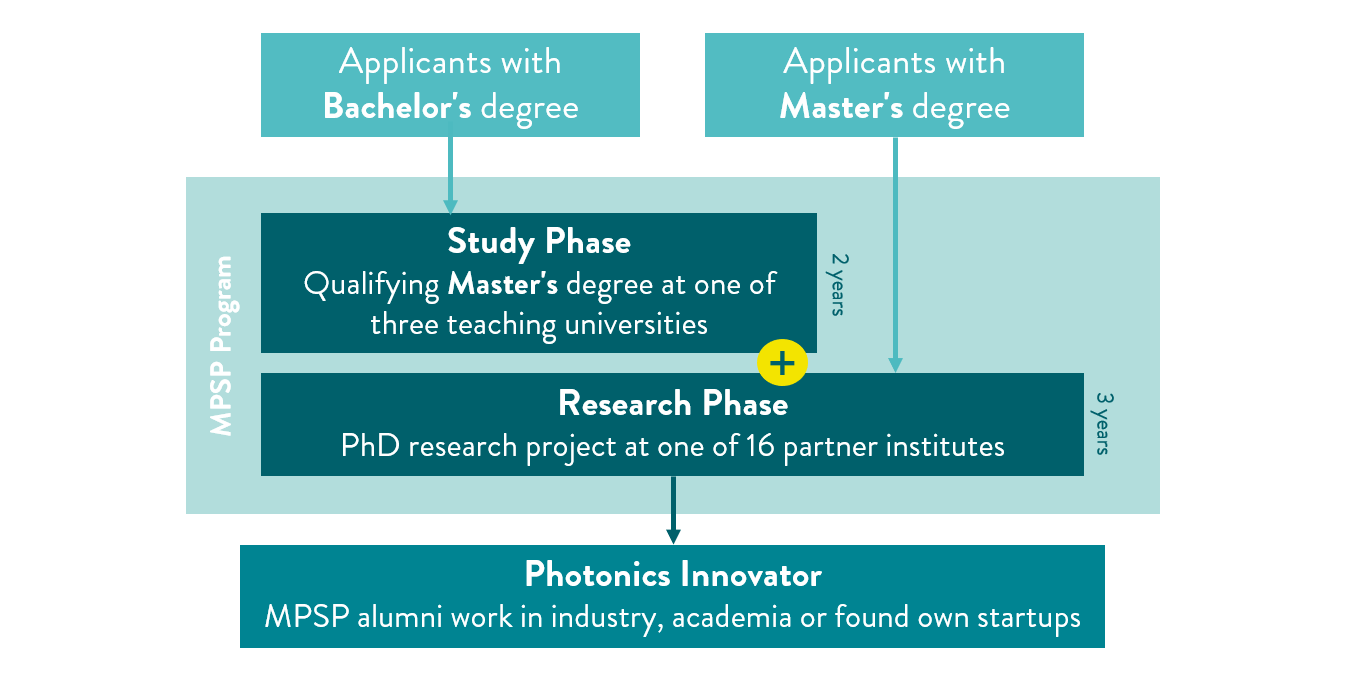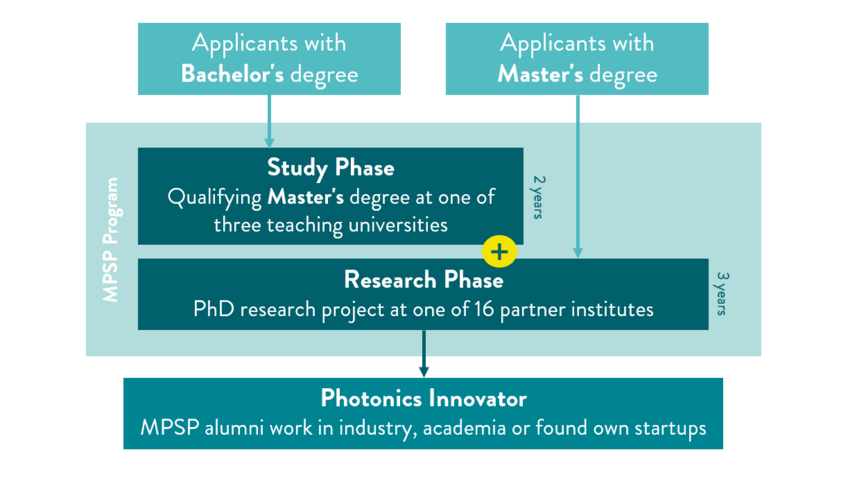Program - Max Planck School of Photonics
How is the doctoral program at the MPSP structured? Who can apply and what makes the program so special? We answer these questions here at a glance.
The MPSP program at a glance
The MPSP PhD program is structured in two phases. If you already have a qualifying master’s degree, you can start the three-year "research phase" straight away and conduct your PhD research. With a bachelor's degree (=undergraduate), you first complete the 2-year "study phase".

Study phase (Master's program)
Requirements: Students applying for the study phase are required to have a Bachelor's degree with significant exposure to physics, engineering or a related subject (usually B.Sc., B.Eng., or B.Tech.) before they join the program.
Graduation degree: Master's degree (continuing with "research phase")
During the study phase, MPSP candidates undergo a full-time master's program at three internationally recognized universities within the Max Planck School of Photonics network:
- Friedrich Alexander University (FAU) Erlangen-Nuremberg
- Friedrich Schiller University in Jena
- Karlsruhe Institute of Technology (KIT)
Contemporaneously, students participate in educational events organised by the MPSP such as spring schools and e-learning lectures, as well as networking and soft skill training.
Summing up what MPSP offers its candidates in the study phase:
- Specialization in an outstanding and international photonics study program at one of the three teaching universities: Friedrich-Alexander Universität Erlangen-Nürnberg, Friedrich Schiller University Jena, or Karlsruhe Institute of Technology
- Workshops on scientific techniques and personal development
- Talks and workshops by Fellows and guest researchers
- Master's thesis in cooperation with a Fellow at the home university or one of the partner institutes
- Transition from the Master's program to the research phase (=doctoral program), connects the students with Fellows and PhD research topics
- Scholarship to cover living expenses
APPLY HERE
for the study phase!
For more details on the study phase, please click here.
Research phase (PhD program)
Requirements: Students applying to the research phase are required to have a Master's degree with significant exposure to physics, engineering or a related subject (usually M.Sc., M.Eng. or M.Tech.) before they join the program.
Graduation degree: Dr. rer. nat. or Dr.-Ing.
About the research phase: During this phase, students focus on their PhD research under the supervision of one of the MPSP Fellows at his or her affiliated institute. Students are encouraged to carry out the research phase at a different location than where they completed the study phase. This helps to take full advantage of the networking opportunities and specialized surroundings.
Summing up what MPSP offers its candidates in the research phase:
- PhD research with close supervision by a Fellow from the MPSP network
- Modern research facilities
- Networking with co-supervising Fellow at a different institute
- Further discipline-specific and inter-disciplinary training courses, as well as soft skill courses
- Spring/Autumn schools and doctoral seminars
- Competitive employment contract at the university or research institute to cover living expenses
APPLY HERE
for the Research phase!
For more details on the research phase, please click here.
Alumni network
Graduates become members of an excellent photonics network which aims to bring together young scientists beyond the PhD program, thereby enabling exposure to excellent career opportunities.

